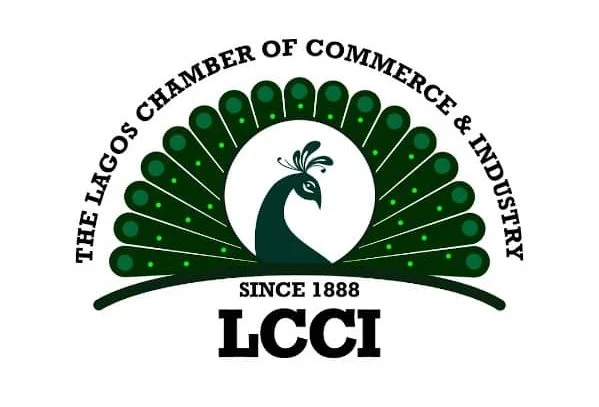The Lagos Chambers of Commerce and Industry has expressed concerns on the latest increase in petrol pump price across the states, calling on the Federal Government to clarify whether fuel subsidies have been removed entirely or partially.
This was contained in a statement signed by the Chamber’s President, Gabriel Idahosa, and made available to newsmen on Friday.
The statement was in reaction to another rise in the price of the Premium Motor Spirit, also known as petrol, by the Nigerian National Petroleum Corporation Limited early this week.
Idahosa established that businesses have continued to suffer from increasing burdens of rising operating costs incurred on logistics, power supply, scarcity of foreign exchange for critical input, and inflated costs on third-party sourced services.

He disclosed that with the Central Bank of Nigeria’s monetary policy rate at 27.25 percent (with allowance up to about 34%), inflation elevated at 32.15 percent (August 2024), an exchange rate above N1620 per USD Dollar, and an unemployment rate at 5.3 percent, noting: “We run a business environment that is too tense for businesses to thrive.”
The LCCI president recalled that since the inception of the present administration, petrol prices have risen by about 430 percent to date, warning: “These indicators may worsen in the coming months due to a thriving speculative environment, harsh regulatory ecosystem, unguided controversies, persistent insecurity challenges, and weakening purchasing power that restrains demand for goods and services.”
Addressing the challenges, Idahosa declared that it will require a multi-pronged approach involving social, political, and economic considerations.
Also Read:
- I now know why Gov. Uba has been praising Tinubu — El-Rufai
- Surviving abroad marriage: My observations, by Tunde Asaju
- Why I dumped PDP – Nwoko; We won’t miss him — Commissioner
- Anambra: Three siblings killed, bodies dumped in deep freezer
- Telecom Tariff Hike: NLC suspends planned nationwide protest
To this end, the LCCI boss called on the government to come out clean on whether fuel subsidies have been removed entirely or partially.
The Chamber recommends further: “The regulatory agencies in the oil and gas sector should let us know what quantity of fuel is consumed locally in Nigeria.
“We must increase crude oil production and reduce oil theft to ensure our crude does not get to neighbouring countries where they are refined and imported back to Nigeria.
“We should implement the Petroleum Industry Act (PIA) to support a fully deregulated oil and gas sector.
“This will reduce the uncertainties and irregularities in the sector, enhance the sanctity of contracts, and attract foreign investments.”
It also recommended that saved subsidy funds should be invested in building infrastructure that can cushion the impact of a tightening economy.
The Chamber recalled that it has consistently recommended the need for fiscal stimulus and non-cash interventions to cushion the burdens unleashed through the tight monetary stance of the government in the past 18 months.
Idahosa said given the present situation, LCCI urged the government to stay focused and more vigorous, regarding the ongoing interventions like the removal of some taxes, the transition to Compressed Natural Gas mobility, Crude for Naira scheme, and suspension of some import duties.
Idahosa added: “The CNG mobility initiative must be supported with CNG refuelling stations nationwide and credit facilities to support quick conversion and usage.
“We also recommend pegging import duties at an exchange rate of N1000 to 1USD to provide much-needed fiscal stimulus. This would stabilise costs for manufacturers who rely on imports, boosting productivity and enabling long-term planning. A fixed rate would lower production costs, leading to increased output and job creation. It would also benefit the broader economy by fostering growth in related sectors like logistics and retail, ultimately supporting Nigeria’s economic stability and expansion.
“Further, LCCI proposes that crude oil supplied to refineries in Naira be pegged at an exchange rate of N1000 to 1 USD. This would significantly lower the cost of petrol for end users, thereby reducing logistics and transportation expenses.
“The ripple effect would stimulate economic activity and help alleviate the current financial hardships faced by Nigerians. It will also significantly contribute to the reduction in food inflation since transport costs are a major component of food production and delivery costs.”
Noting that the country is at a crossroads with policy directions, the LCCI affirmed that Nigeria needs a positive national orientation to navigate the stormy waters “we find ourselves in today”, restating that that the government should come plain to Nigerians and businesses on the direction of their policies and what near-term achievements are possible.
Idahosa affirmed that this will build some level of certainty to support business planning and decisions.
Recall that the NNPCL announced new pump price of petrol on Monday, this week.
This happened barely two weeks after Dangote Refinery commenced purchase of crude oil from the oil giant in naira in line with the resolution of the Federal Executive Council.
However, LCCI indicated it has tried to understand whether the hikes could be the government’s intention to fully deregulate the oil and gas sector and implement a complete fuel subsidy removal policy.
Still, the Chamber observed that the dynamics and controversies around the steps create most of the distortions the country experiences in the business environment, making businesses operate under dark clouds of uncertainties.
In the same vein, LCCI stated that the controversies surrounding the working relationship between NNPCL and the Dangote Refinery are equally confusing.


